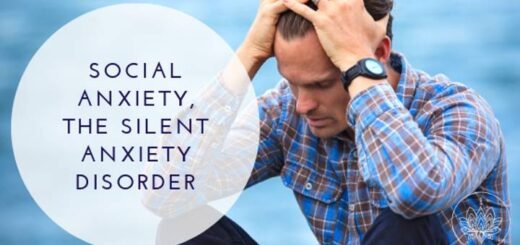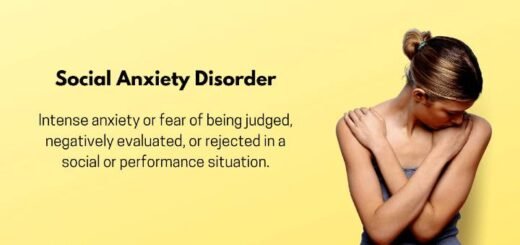Understanding Social Phobia: Biological and Psychological Insights
Social phobia, or social anxiety disorder, is a prevalent condition affecting many Kiwis, leading to significant distress and impairment in daily life. Understanding the biological and psychological causes of social phobia is crucial for those seeking clarity and support in New Zealand. By exploring these underlying factors, individuals can better navigate their experiences and access effective resources.
In New Zealand, understanding social_1 can empower individuals to seek the help they need. Local support groups play a vital role in fostering community and providing strategies for managing anxiety. For those looking to connect with others who share similar challenges, resources like the support groups for social phobia in New Zealand can offer invaluable assistance. Embracing this understanding can pave the way for healing and greater social engagement.
Understanding Social Phobia: An Overview
Social phobia, also known as social anxiety disorder, is a psychological condition characterized by an intense fear of social situations where one may be judged or scrutinized by others. For many Kiwis, understanding the intricacies of social phobia is crucial for seeking clarity and support. This condition can manifest in various forms, including fear of public speaking, attending social gatherings, or even engaging in everyday interactions. The psychological impact can be profound, leading to feelings of isolation and depression.
The biological underpinnings of social phobia suggest that genetics may play a role in its development. Studies have shown that individuals with a family history of anxiety disorders may be more susceptible to social phobia. Moreover, differences in brain chemistry, particularly involving neurotransmitters like serotonin and dopamine, can influence anxiety levels. To gain further insights into social phobia and its effects, Kiwis can refer to Social Phobia New Zealand, a valuable resource for understanding social_1.
Biological Factors Contributing to Social Phobia
Research indicates that biological factors significantly contribute to the development of social phobia. Genetics can predispose individuals to anxiety disorders, and studies suggest that certain genes may increase vulnerability to social anxiety. Additionally, neuroimaging studies have identified specific brain regions, such as the amygdala, which are hyperactive in individuals with social phobia. This heightened response can lead to an exaggerated perception of threat in social situations.
For Kiwis, understanding these biological factors can help normalize their experiences and reduce feelings of shame or guilt associated with social anxiety. Engaging with mental health professionals who specialize in anxiety disorders can provide tailored strategies for managing symptoms and addressing the biological aspects of social phobia. For further information and support, Kiwis can visit Social Phobia New Zealand to explore resources related to social_1.
Psychological Aspects of Social Phobia
The psychological components of social phobia are equally significant. Cognitive distortions, such as overestimating the likelihood of negative evaluation or catastrophizing social interactions, can exacerbate feelings of anxiety. Individuals may engage in avoidance behaviors, steering clear of situations that trigger their fears, which can lead to further isolation.
For Kiwis dealing with social phobia, cognitive-behavioral therapy (CBT) has proven effective in addressing these psychological challenges. CBT focuses on identifying and restructuring negative thought patterns, helping individuals develop healthier coping mechanisms. Seeking therapy can empower Kiwis to confront their fears in a supportive environment, and additional resources on dealing with social phobia can be found at Social Phobia New Zealand, which emphasizes understanding social_1.
Environmental Influences on Social Phobia Development
Environmental factors can significantly influence the onset and progression of social phobia. Negative experiences, such as bullying or criticism during formative years, can shape an individual’s perception of social interactions and increase susceptibility to anxiety. Cultural influences in New Zealand also play a role; societal expectations and norms can create pressure to conform, leading to heightened anxiety in social settings.
For Kiwis, recognizing these environmental triggers is essential for effective intervention. Support groups and community programs can provide a safe space for individuals to share their experiences, fostering a sense of belonging. Resources like Social Phobia New Zealand offer insights into overcoming environmental barriers and understanding social_1.
Strategies for Managing Social Phobia
Managing social phobia involves a combination of therapy, self-help strategies, and, in some cases, medication. Techniques such as deep breathing, mindfulness, and gradual exposure to feared situations can help individuals build confidence over time. For Kiwis, participating in local workshops or support groups can provide practical tools and a sense of community.
Additionally, lifestyle changes, such as regular exercise and a balanced diet, can positively impact mental health. Engaging with resources like Social Phobia New Zealand can provide Kiwis with tailored strategies for understanding social_1 and managing their anxiety effectively.
The Role of Family and Friends in Supporting Individuals with Social Phobia
The support of family and friends plays a crucial role in helping individuals cope with social phobia. Loved ones can provide encouragement, understanding, and a safe space to discuss fears without judgment. Educating family members about social anxiety can foster empathy and create an environment conducive to healing.
For Kiwis with loved ones struggling with social phobia, active listening and patience are vital. Encouraging open conversations about anxiety and its triggers can help demystify the experiences of those affected. Resources such as Social Phobia New Zealand offer guidance for families and friends on how to support their loved ones in understanding social_1 and addressing social anxiety.
Seeking Professional Help for Social Phobia
For Kiwis experiencing significant distress due to social phobia, seeking professional help is an essential step towards recovery. Mental health practitioners can provide comprehensive assessments and develop personalized treatment plans that may include therapy, medication, or a combination of both. Early intervention can lead to better outcomes, helping individuals regain control over their lives.
In New Zealand, access to mental health services varies, but numerous organizations offer support for those struggling with social anxiety. Utilizing resources like Social Phobia New Zealand can guide Kiwis towards finding the right support and understanding social_1. Taking the first step to seek help can significantly improve quality of life and foster a greater understanding of social phobia.
FAQs
What is social phobia and how does it manifest?
Social phobia, also known as social anxiety disorder, is characterized by an intense fear of social situations where one might be judged or scrutinized by others. Individuals may experience symptoms such as excessive sweating, rapid heartbeat, and overwhelming anxiety when faced with social interactions, leading to avoidance behaviors that can significantly impact daily life.
What are the biological causes of social phobia?
The biological causes of social phobia may include genetic predisposition, neurochemical imbalances, and brain structure abnormalities. Research suggests that individuals with a family history of anxiety disorders are more likely to develop social phobia, indicating a genetic component. Additionally, neurotransmitters such as serotonin and dopamine play crucial roles in mood regulation, and imbalances can contribute to anxiety symptoms.
How do psychological factors contribute to social phobia?
Psychological factors such as negative thought patterns, low self-esteem, and past traumatic experiences can significantly influence the development of social phobia. Individuals may internalize negative feedback from past social interactions, leading to a persistent fear of embarrassment or rejection, which reinforces their anxiety and avoidance behaviors.
What role does environment play in the development of social phobia?
The environment can play a significant role in the onset of social phobia. Factors such as upbringing, social experiences, and cultural expectations can shape an individual’s perception of social situations. For instance, Kiwis who grow up in environments that emphasize social conformity may feel heightened pressure in social settings, potentially leading to increased anxiety.
Can social phobia be treated effectively?
Yes, social phobia can be treated effectively through various therapeutic approaches. Cognitive-behavioral therapy (CBT) is one of the most effective treatments, helping individuals challenge and change negative thought patterns and behaviors. Additionally, medication such as selective serotonin reuptake inhibitors (SSRIs) can be prescribed to help manage symptoms.
What support options are available for Kiwis experiencing social phobia?
For Kiwis seeking support, there are numerous resources available, including mental health services, counseling, and support groups. Organizations such as Anxiety New Zealand provide valuable information and assistance for individuals struggling with social phobia, promoting awareness and effective coping strategies.
How can friends and family help someone with social phobia?
Friends and family can play a crucial role in supporting someone with social phobia by fostering a safe and understanding environment. Encouraging open communication, validating their feelings, and gently prompting them to engage in social situations can help. It’s important for loved ones to be patient and avoid pressuring the individual, as this can exacerbate anxiety.
References
- Mental Health Foundation of New Zealand – A comprehensive resource that provides information on mental health issues, including social phobia, with a focus on support and awareness for Kiwis.
- Social Phobia New Zealand – A dedicated website offering insights, resources, and support specifically tailored for individuals dealing with social phobia in New Zealand.
- Psychology Today: Social Anxiety Disorder – An authoritative source that outlines the biological and psychological aspects of social anxiety disorder, providing valuable insights for understanding the condition.
- NHS: Social Anxiety Disorder – The National Health Service offers a detailed overview of social anxiety disorder, including causes, symptoms, and treatment options, relevant for those seeking clarity on the topic.
- American Psychological Association (APA): Social Anxiety – A reputable source that discusses the psychological factors contributing to social anxiety, offering insights into effective coping strategies and treatments.




